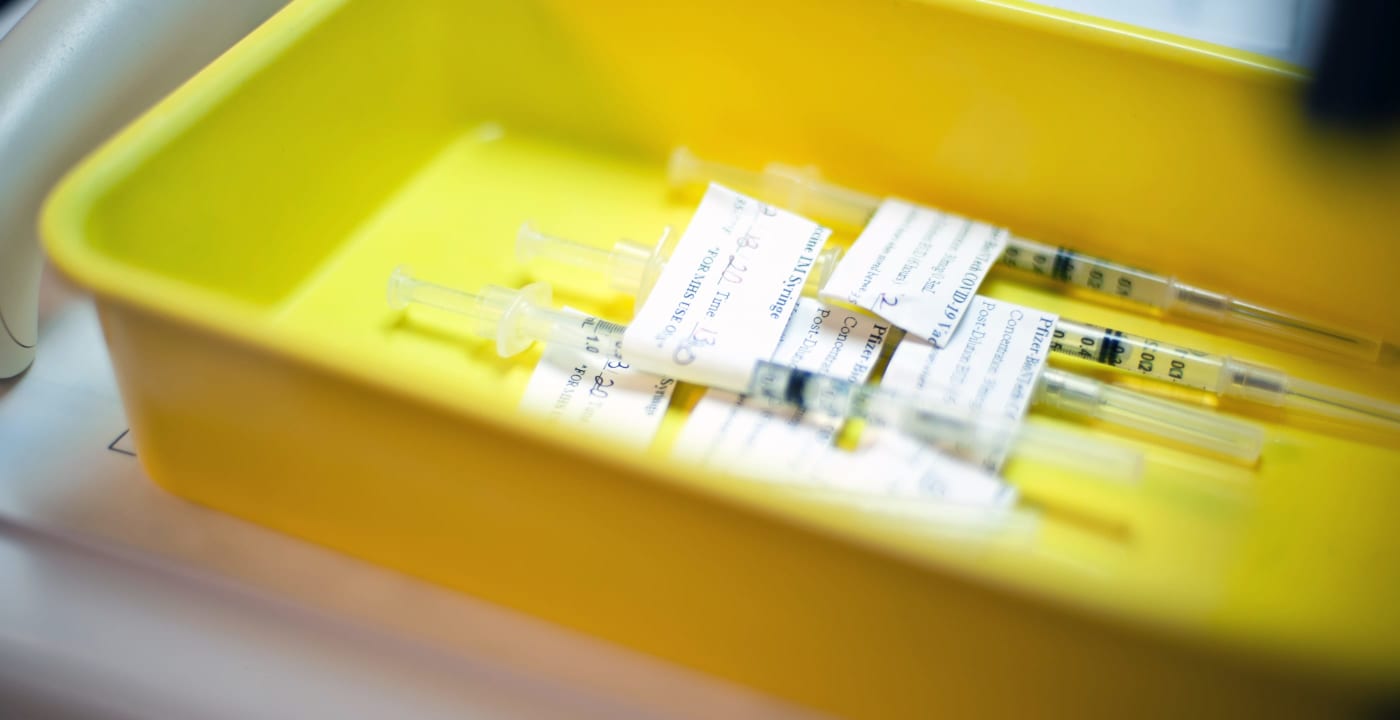Kids and the COVID-19 vaccine—What do parents need to know?

“Vaccine envy” is phenomenon with adults who are anxious about waiting for their turn to get the vaccine, and it’s also the case for parents and children. Why are there age restrictions on which kids can get the vaccine now? What comorbidities qualify a child now? If parents are fully vaccinated, how can they protect their children? What questions should they ask their pediatrician? Should pregnant teens be concerned?
Mary Fairchok, MD, Mary Bridge Children’s infectious diseases physician, shares the latest information about kids and the COVID-19 vaccine, including answering common questions and giving insight on the importance of the vaccine for pediatric populations.
What kids can get the vaccine now? How do they qualify?
Right now, the Pfizer vaccine is available for teens 16 years old and above, with two or more comorbidities. Those comorbidities include things like chronic illnesses that affect most of the organs in the body, such as pulmonary diseases like asthma or cystic fibrosis, neurologic diseases, hematological diseases like sickle cell or cancer, and any kind of immunocompromised condition, according to Dr. Fairchok. A list of qualifying conditions can be found on the Centers for Disease Control’s website.
The good news is that all teens older than 16 will qualify for the vaccine as of April 15, so the wait will soon be over for that population. It’s yet to be determined when younger children will be eligible, based on when one or more of the vaccines are approved for use in children.
What is so important about age restrictions? My child is sick and should qualify now.
“I certainly understand the anxiety,” said Dr. Fairchok. “We have to do this in a safe and scientific way. We don’t test things in children until we are sure that they’re safe and effective in adults, to provide that extra layer of security because children cannot consent for themselves.”
Dr. Fairchok said that it is standard practice in clinical trials to start with adults and the specific age of children depends on how the pharmaceutical companies structured the studies and trial approvals.
Pfizer recently released information on the additional clinical trials it held for children ages 12 to 16, and reports that it is 100 percent effective in protecting this patient population from symptomatic disease.
Similar to the process for approving vaccine in adults, manufacturers submit for an emergency use authorization under the Food and Drug Administration before the vaccine can be used in children. Dr. Fairchok anticipates younger children will soon qualify for the vaccine and companies will begin enrolling even younger children in clinical trials and studies.
What kinds of questions should I ask my child’s pediatrician? What can my teen talk to their doctor about the vaccine?
Dr. Fairchok encourages parents and teens to ask any questions that come to mind. “If they’re fearful about reactions or about what it would do to their fertility, these are some of the things that have come out that people are worried about,” she said. “Certainly, their pediatrician can reassure them that these vaccines are safe. We have no evidence to suggest or think that there’s going to be any long-term consequences.”
Dr. Fairchok said it’s also a good opportunity to talk to your child’s doctor about their current health and if there are things that might qualify your child for a vaccine now, or in the unlikely case, any contraindications that might require you to wait longer.
“There are very few contraindications to any of the three vaccines that we currently have,” she said. The biggest one is severe allergies to components of the vaccine, including polysorbate found in the Johnson & Johnson vaccine and polyethylene glycol, which is commonly found in laxatives and is a component of the Moderna and Pfizer vaccines.
If younger people are less impacted by COVID-19, why is still important to get the vaccine?
While young people are much less likely to have a severe reaction to the coronavirus, they aren’t exempt from getting it. Dr. Fairchok said her very healthy 27-year-old daughter was hospitalized for a week with it, and she had never seen her that sick before. She encourages teens and young adults to do their part in keeping society healthy and not assume that they’re invulnerable to the virus, as younger adults and children can also pass the virus to others, even if they don’t get very sick themselves.
“Many young adults are just over it and understandably want to socialize and have fun,” she said. “The message parents can give to their young adult children or their teenage children is to be respectful to other member of society and do your part to help end this by following the public health guidelines and recommendations.”
If parents are fully vaccinated, what should they do to protect their families?
“First of all, I would just love to congratulate them and applaud them for what they’ve done, because they have done the key thing, the most important thing they could possibly do to protect their children. I hope more parents will continue to do that,” Dr. Fairchok said.
She says parents should continue to follow the advice provided throughout the pandemic, including not going into crowded and unventilated areas with your children, teaching your kids to wash their hands, remembering to keep their distance in public spaces, and if they’re old enough, teaching them to wear their masks properly.
As a pediatric infectious diseases doctor, what encourages you about the headway we’re making with COVID-19 vaccines?
“This has been an amazing time to show how robust science is in our country. I mean, there’s never been anything like it to get this vaccine as quickly,” Dr. Fairchok said.
As more information comes in about how well the vaccines work and how long they last, there is also increasing evidence that the vaccines protect against asymptomatic infection and transmission of COVID-19. Dr. Fairchok encourages people to live in optimism and realize that the best minds in the country and around the world are working on solving this problem but have already achieved so much.
For more information about COVID-19, visit our vaccine page.




